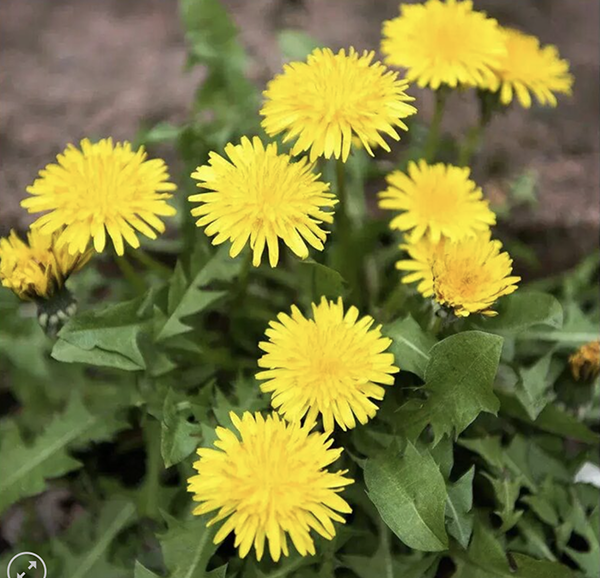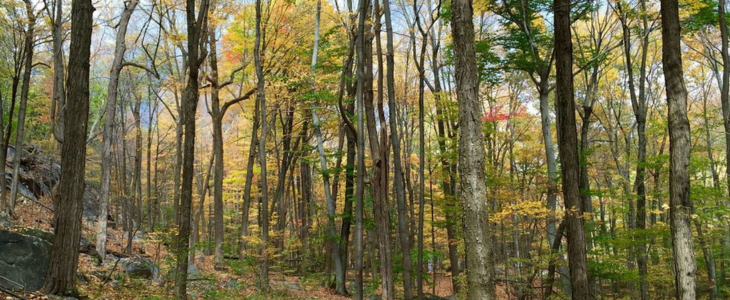Make a wish before blowing on a dandelion, some say, and the confetti of airborne seeds might give your wish liftoff. Or you might just end up with a new batch of dandelions to wish on later.
Neither outcome would be bad. Though the yellow-flowered masters of survival that show up early each spring have been the cause of consternation among green lawn purists for decades, dandelions are undergoing a reputational shift.
“What should you do if you see a dandelion growing in your yard?” asks Tyrese Gould Jacinto, president of Native American Advancement Corporation, a Bridgeton nonprofit. “You should jump for joy.” Her ancestors have recognized the benefits of dandelions for centuries. The English settlers who introduced them to America by stashing a supply aboard the Mayflower in 1620, if you believe the internet rumors, knew their value, too.
 Before dandelions started poking through the pavement cracks of this state we’re in, they were prized by cultures across Europe, China and India for their medicinal properties. Jacinto, an herbalist, harvests the leaves to make poultices for soothing bug bites and minor skin irritations. “They’re antifungal, antibacterial and anti-inflammatory,” she said. Historically, they’ve been used to treat liver and digestive problems. They may be best known among herbalists as a diuretic, helping the body rid itself of excess fluid.
Before dandelions started poking through the pavement cracks of this state we’re in, they were prized by cultures across Europe, China and India for their medicinal properties. Jacinto, an herbalist, harvests the leaves to make poultices for soothing bug bites and minor skin irritations. “They’re antifungal, antibacterial and anti-inflammatory,” she said. Historically, they’ve been used to treat liver and digestive problems. They may be best known among herbalists as a diuretic, helping the body rid itself of excess fluid.
And as some New Jerseyans know, dandelions taste good, too! Vineland, in Cumberland County, was once known as “the dandelion capital of the world” for the dozens of farmers who made their living growing and selling its vitamin-rich leaves there. In the 1970s, the town started an annual dandelion festival that evolved into a formal dinner – dandelion and ricotta ravioli have been on the menu – that is still hosted by the chamber of commerce each spring.
Recipes for dandelion wine and dandelion beer, made from the bright yellow blossoms, have long been a favorite of home-brewers and those on a budget. Though Starbucks probably isn’t feeling intrigued just yet, food manufacturers have started drying dandelion roots and roasting them for a coffee substitute.
A reconsideration of dandelions shouldn’t be restricted to their medicinal and culinary uses, though. Dandelion flowers are a nectar source for scores of pollinating insects, including butterflies, moths and especially bees. Birds count on them as a food source – sparrows, goldfinches and other birds eat their seeds, and predators like mockingbirds eat the insects that visit their flowers.
Jacinto monitors dandelions’ progress each spring for an indication of soil health. “Their presence means the earth they’re growing in is rich in microbes,” she said. Microbe-rich soil translates to the abundance of life she notices in her South Jersey yard. “It feeds the birds, it supports the bugs for the birds, it brings rabbits and all kinds of wildlife.” She and fellow Native Americans consider dandelions part of the tapestry of “creator’s grass.”
Dandelion taproots reach deeply and are strong enough to loosen hard-packed soil, enabling it to soak up water and reduce erosion and runoff. And though they are considered ruderals, or pioneer plants, meaning they’re the first to grow in disturbed areas, dandelions are not determined to displace native species in sensitive natural habitats. Only Alaska and Oregon list them as invasive.
Even their lineage is worth noting: At some point in the distant past, the plant stopped reproducing through sex, giving up on males. Now the asexual, or parthenogenetic, dandelion is almost exclusively female, with each a duplicate of its maternal ancestors. A lawn filled with dandelions may have many clonal lineages living in peace, side by side.
 Given their uses and benefits, the lengths to which many will go to eliminate them, often with toxic herbicides, seems misguided. Those who feel the need to rid their yard of the pretty flowers might consider steeping a tea from their roots or petals or harvesting their leaves for a salad instead. Author and forager Tama Matsuoka Wong, of Hunterdon County, includes a recipe for dandelion leaf salad with poached eggs, bacon bits and potato in her cookbook “Foraged Flavor.” Dandelion flowers, she said in a recent interview, “can be fried in fritters or a tempura and taste fluffy like popcorn.”
Given their uses and benefits, the lengths to which many will go to eliminate them, often with toxic herbicides, seems misguided. Those who feel the need to rid their yard of the pretty flowers might consider steeping a tea from their roots or petals or harvesting their leaves for a salad instead. Author and forager Tama Matsuoka Wong, of Hunterdon County, includes a recipe for dandelion leaf salad with poached eggs, bacon bits and potato in her cookbook “Foraged Flavor.” Dandelion flowers, she said in a recent interview, “can be fried in fritters or a tempura and taste fluffy like popcorn.”
Matsuoka Wong advises sticking to clean environments when foraging for dandelions. Harvesters should steer clear of spots near car exhaust fumes, chemical applications and pet waste. When making salads, she chooses the light green leaves at the center of the plant, which tend to be the most tender and least bitter.
It’s harder to find an expert for tips on how to ensure the wishes made on dandelion seed heads come true, of course. But given all its benefits, let’s make a wish that this humble plant keeps thriving!
For more information on the Native American Advancement Corporation, go to www.nativeadvancement.org.
To find Matsuoka Wong, visit www.meadowsandmore.com. You can buy her books, including the recently published “Into the Weeds: How to Garden Like a Forager,” at bookstores and on Amazon.
And to learn more about preserving New Jersey’s land and natural resources, visit the New Jersey Conservation Foundation website at www.njconservation.org or contact me at info@njconservation.org.







